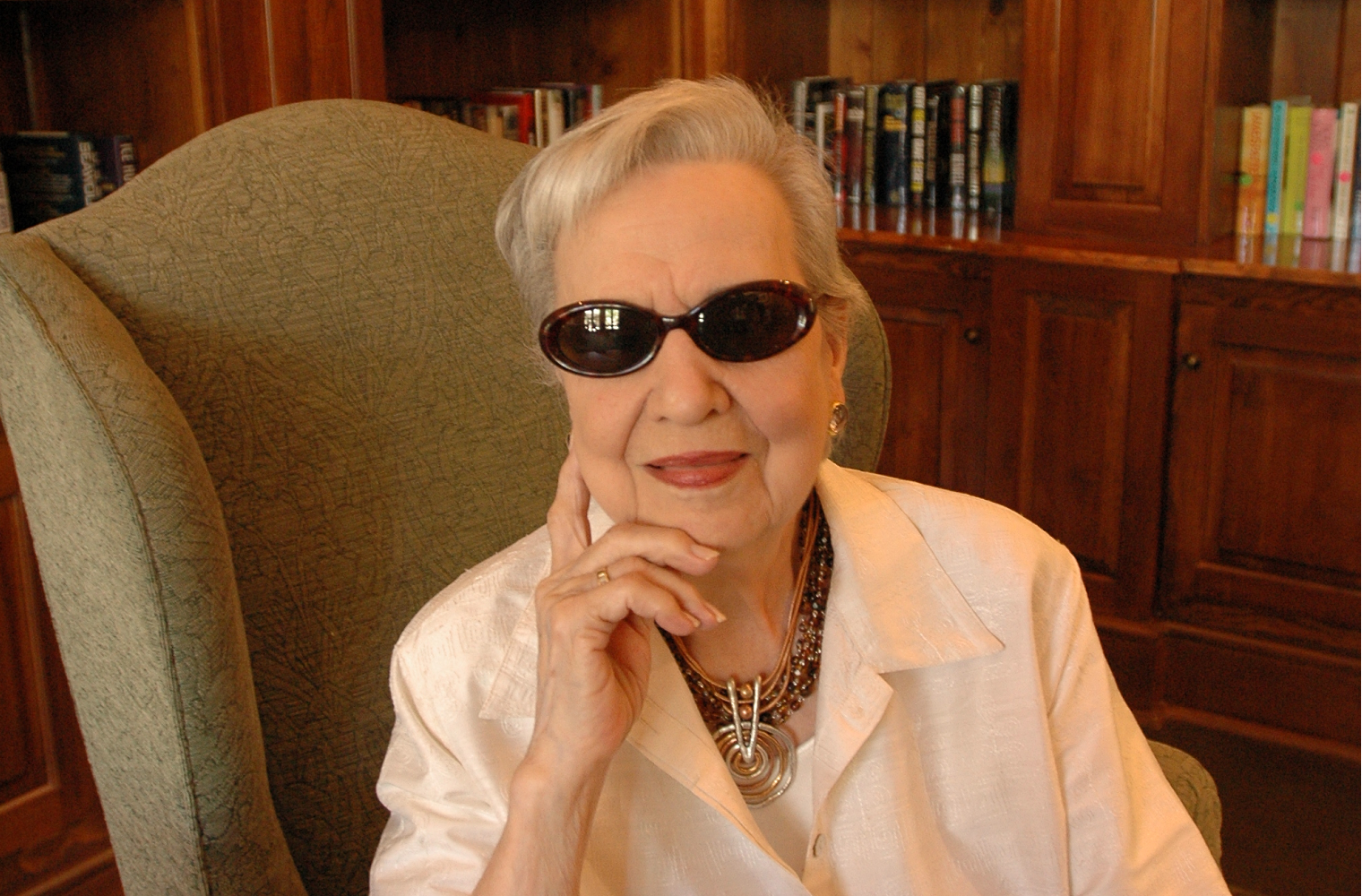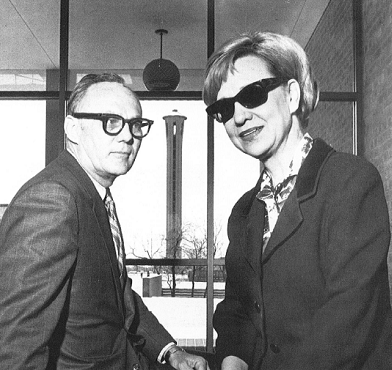Legendary Dallas Teacher Dies: This Unique, Glamorous Woman Shaped the City’s Most Influential Minds
BY Patricia Mora // 11.20.15
Dr. Louise Cowan (Photo courtesy University of Dallas)
Dr. Louise Cowan (December 22, 1916 – November 16, 2015), née Shillingburg, was a native of Fort Worth who led a life of service that ended Monday at the age of 98. However, to say it ended would be to misspeak.
She was an educator for almost seven decades who delivered densely packed lectures at the University of Dallas and, later, at the Dallas Institute of Humanities and Culture, on topics including literary theory, Shakespeare, Russian novels, poetry of every era, Southern literature and more. Cowan’s lectures were — for those fortunate enough to witness them — a guaranteed epiphany characterized by intellectual pyrotechnics and a somewhat glamorous demeanor. In part, the latter was due to sunglasses she perpetually wore to hide cosmetic issues incurred by a botched eye surgery she underwent during her twenties.
Into her final years, she remained coiffed and groomed and, until she quit the habit, bevies of young men would crowd her at lectures in an effort to be the first to light her cigarette. They were doting acolytes and she was an enigmatic figure who persuaded all who heard her of a single fact: The goal of education is to hone one’s heart — and the great classic texts, if carefully considered, will lead to deeply held wisdom rather than a mere accrual of facts.
Among her students were some of Dallas’s most influential figures, including Caroline Rose Hunt, Deedie Rose, Laura Bush, Margaret McDermott, Sue Rose, Gail Thomas, Joanne Stroud and, later, Nancy Cain Marcus. Most of those who learned from her went on to redefine the lineaments of Dallas or became educators. Cowan’s insight and generosity has cascaded through generations and resonates with all those who were conferred the greatest of privileges — that of learning from a woman of penetrating intellect and infinite grace. Consequently, November 16 marks less an end than a transition. Cowan would ask that those who learned from her continue in their own way to also lead lives of compassionate service and aspire to make a difference to the community in substantive ways. One of her many maxims: “People are truly who they are when they’re at their best.”

Louise and her husband, the late physicist Donald Cowan, received their doctorates from Vanderbilt University and came to teach at the University of Dallas, a private Catholic university located in Irving, in 1959. She chaired the English department and became dean of the graduate school — the Institute of Philosophic Studies — while Don became president of the university, where he served until 1977. They were known for hosting ambitious parties in somewhat swanky digs where the conversation was the best to be had — anywhere, at any time.
Louise crafted a “core curriculum” from which no one was exempt. It began with the epic works of Homer, Virgil, Dante and Milton and added texts from Aristotle, T. S. Eliot, Donne, Keats, Yeats, Wallace Stevens and more. A truncated list of required novels includes tomes by Flaubert, Melville, Conrad, Faulkner, Turgenev, Gogol, Tolstoy and Dostoyevsky. Philosophy classes included everything from Hesiod and Plato to Heidegger. To say it was rigorous is an understatement.
Cowan also believed in importing some of the finest minds in the world to the “school on the hill” in Irving. It almost seems the stuff of fantasy. Among the professors she enticed to come for extended stays were: Viktor Frankl, Marshall McLuhan, Jacques Barzun. Eric Voegelin, Christian Norberg-Schulz and James Hillman (1926 – 2011). The latter became director of studies at the Jung Institute in Zurich when Carl Jung died; however, he moved to Dallas and taught at the University of Dallas before assuming a dynamic role at The Dallas Institute of Humanities and Culture — Cowan was a co-founder of the Institute in 1980.
Both the university and the institute momentarily seem less vivid than in the days when Cowan was challenging both professors and students to continue learning at an ambitious pace. Her last days were largely spent with assistants and former students reading to her. She requested works by the metaphysical poet John Donne, as well as passages from Dostoyevsky’s The Brothers Karamazov and Dante’s Paradiso. Nothing could possibly be more fitting.
Prior to being confined — due to infirmity — in her apartment in an upscale retirement center, Louise was fond of afternoon trips to Sevy’s for crab cakes and a Manhattan. Out of respect and gratitude for her and her remarkable life, I’ll soon be going and making a similar order; after all, Louise’s life is well worth celebrating. She taught us all to be better — and when we fail, she also taught us to start again and, as Faulkner said, “… we have got to take along with us all the rubbish of our mistakes and errors … We must take the trouble and sin along with us, and we must cure that trouble and sin as we go.”
I can picture Louise now, nodding her head while considering the language, then pausing and uttering, “Yes, that’s right. That’s what we must do.”




















_md.jpeg)

